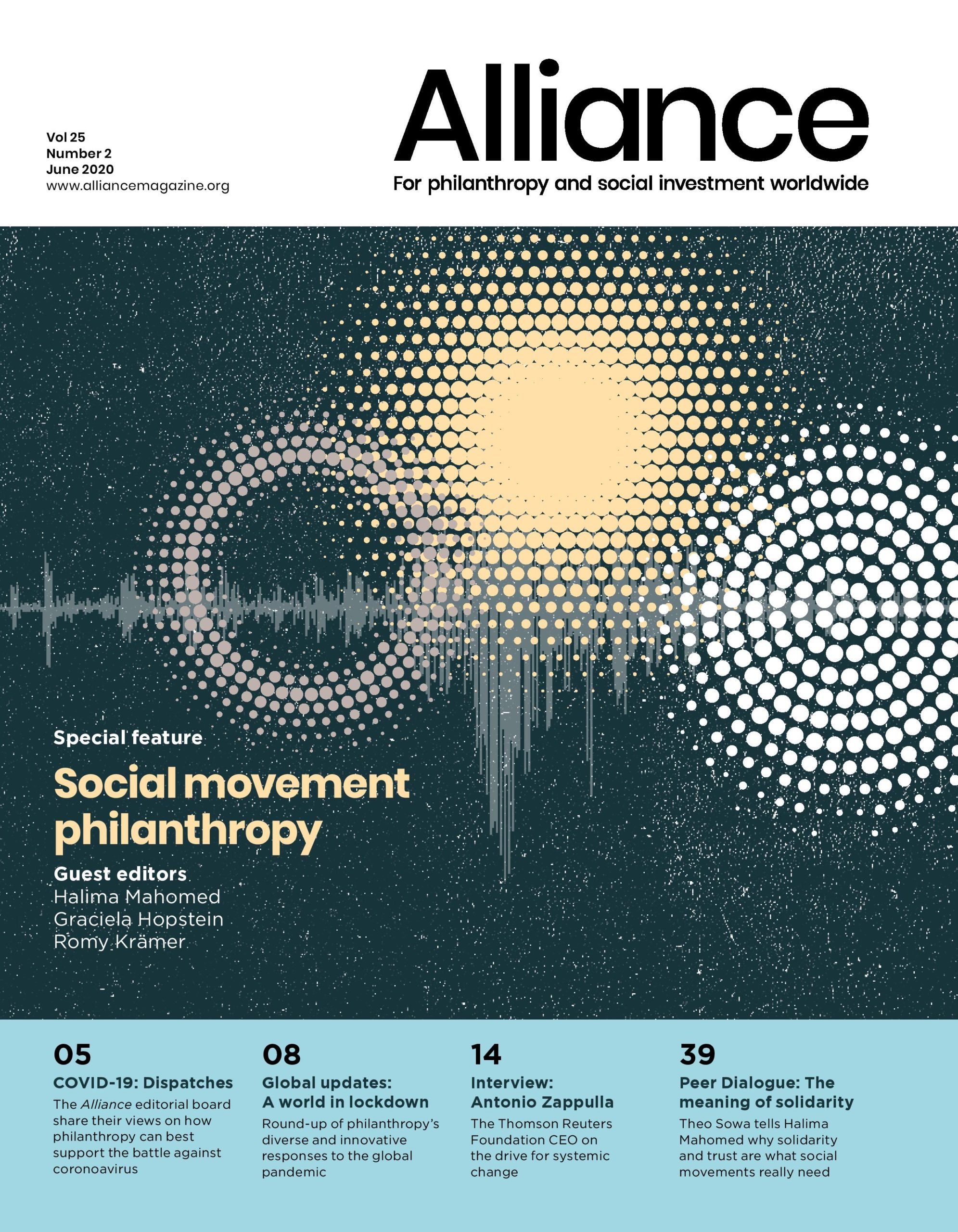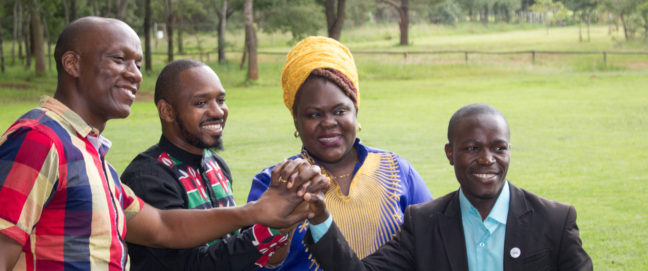If foundations are to help bring about the meaningful changes that people in Africa want, they need to support social movements
For several years, rising injustice and social inequality have been the catalyst for social movements which aim to raise collective awareness and organise peaceful protests for fairer living conditions. At the same time, there is a multitude of foundations and philanthropic organisations dedicated to helping improve the living conditions of populations across the world. Too often, however, the activities of these two groups run along separate tracks. Can the two be brought to work together more closely?
In Africa, the last decade has seen the emergence of new forms of social expression highlighting the social and political demands of ordinary citizens for real change in the systems of governance of their countries. Through internet platforms, social movements have been created on the ground by young people indignant at their living conditions.
African youth organised in movements are bringing about real changes in their countries and making important differences in building the future of Africa.
In countries like Senegal, the Democratic Republic of the Congo, Tunisia, Egypt, Chad, Togo, The Gambia, Zimbabwe, Kenya, South Sudan, and Burkina Faso, so-called ‘social movements’ are playing a large role in the democratisation of their countries and the awakening of the consciousness of their people.
Non-violent actions and campaigns by citizens have led to the dismissal from office of presidents and the holding of democratic elections. The synergies they generate create national and pan-African mobilisation to make their voices heard at the highest level in order to solve the problems of their communities. Generally speaking, though, their actions are not aimed at overthrowing a political power, nor gaining the confidence of sponsors to benefit from their funding; they are conceived, organised and carried out to solve a specific local or national problem. The impact of these movements in the transformation of society is significantly greater because of the freedom of action and independent spirit of their members, the recognition of the real problems of their communities, the indignation that drives their participants, the flexibility and adaptability of their methods of organising and the networking that characterises their actions.
These movements are working together to organise and mobilise more and more people to join the battle for change in Africa by Africans.
Social movements like Y’en a Marre (That’s Enough) in Senegal and LUCHA (Struggle for Change) in the DRC have succeeded in providing access to drinking water, to electricity and to essential products through non-violent action because their aims matched peoples’ aspirations.
Across Africa, these movements are working together to organise and mobilise more and more people to join the battle for change in Africa by Africans. In July 2018 in Dakar in Senegal, more than 30 African social movements from some 20 African countries, including LUCHA, Y’en a Marre, and Burkina Faso’s Balai Citoyen, created the collective ‘Afrikki’, which is now working to build solidarity between movements and to increase their impact in the transformation of society at national, regional and pan-African level. Members are trying to create opportunities to share their experiences and best practices developed over years of organising often in a repressive environment and with limited resources. In November 2019, members of movements from the Congo and Senegal attended a gathering organised by the Southern Movement Assembly, a collective of movements from the southern US and members of Afrikki. Afrikki has also put in place a fund to assist activists in danger and facilitate exchanges between social movements. As a result, African youth organised in movements are bringing about real changes in their countries and making important differences in building the future of Africa.
In contrast, philanthropic organisations follow the guidelines dictated by their trustees which sometimes means that they fail to adapt to the contexts and needs of the countries they work in. In the DRC, for example, there are foundations and NGOs that build public toilets in villages without a school. They carry out multimillion dollar projects that have little impact on the beneficiary communities.
If philanthropic institutions are serious about making the changes that are needed, they should back these Indigenous efforts without imposing restrictions on social movements or defining their programmes. Their support should be unconditional, allowing the change sought by these movements to be driven by local communities. It is only Africans who can change their own continent.
This article was translated from French exclusively for Alliance by Laura McCaffrey.
Ghislain Muhiwa is a LUCHA activist and social sciences researcher in the Democratic Republic of the Congo.
Email: muhiwa.k.ghislain@gmail.com




Comments (0)